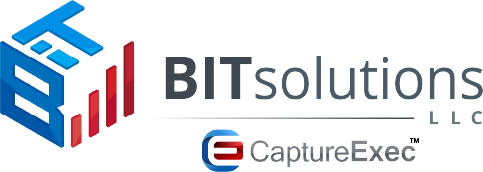If you’re in the market for a CRM solution, I think we can all agree that evaluating cost is going to be a large part of your decision-making process. That’s the way it is for most things.
The problem is that there isn’t a good blanket answer to the question of how much a CRM should cost. While it would be convenient, the reality is that you can’t compare CRMs the way you would compare apples to apples. Across the board, CRM solutions will offer some similar functionalities, but CRMs are a lot like people; they come in many different shapes and sizes, and each will boast their own set of “unique” features and benefits that set them apart from the competition and justify their varying price tags.
Unfortunately, determining what value a particular solution can provide takes time, a luxury most of us probably find to be in short supply. So how do you evaluate your CRM options in a way that is effective and efficient? Read on to learn the four questions you should be asking when you’re trying to answer, “How much should a CRM cost?”
How Are User Fees Assessed?
Most CRMs charge a flat “per user, per month fee” for access to their system. Some group their user fees based on a range of users (i.e. one to 15 users vs. 50+ users), while others provide a bulk discount if you surpass a certain number of users per month. Then there are those that charge you more for exceeding a specific number of users.
These are the kind of user limitations and exceptions you need to watch out for. They key here is don’t only ask what the cost for 10-users would be – also ask what the cost will be when you grow to 25-users. Make certain the cost the linear – ie. $50/user/month for 10-users AND $50/user/month for 50-users!
Are There Any Hidden Fees?
As consumers, we’re trained to keep an eye out for hidden costs, especially when a deal sounds too good to be true. Well, the same rule of thumb holds true for CRMs. For instance, most CRMs will state a particular pricing structure, but will neglect to mention you’re going to be charged more for memory and storage by default. So if you don’t need extra space, go out of your way to confirm you’re not going to be paying for it. However, if it is something you’ll need, don’t go off of the sticker price. Instead, negotiate the cost based on the number of users you’re paying for.
What Comes Standard?
Think of your potential CRM like a car; there will be some features that come standard, and then there are those that look great, but it’ll cost you. So when you’re going through this process, identify which capabilities are provided in a CRM’s “out of the box” package vs. those that are available as add-ons or will require further customization. Some vendors charge for additional features (for the low prices you get a “starter” package). Hard to imagine that you would have to pay extra for Reporting capabilities, adding MORE than 10 custom fields, separated modules with features that you need today.
Most platforms charge for any level of customization that is required outside of what you’re able to do internally – customizing dashboard views, for instance. If the as-is functionality of a CRM doesn’t meet your needs, you will need to decide if a customization or add-on’s perceived value is going to be worth the additional time and money needed to have it. Once you customize your system, as your company grows and morphs, that customization will have to be customized again to keep up with your growing company.
What About Modules?
Most CRMs have modules that provide support to various components of your business. For instance, they may have a module specific to capture management, another module for account management, a third module for business development, etc. While all of these modules may be useful to have, ask about their cost, as well as any possible package or bundle discounts.
Final Thought
At first glance, most CRMs will appear to be reasonably priced. But there is no one-size-fits-all CRM that will meet the needs (and budget) of every single business. So while it does take time, be up front and ask questions before you make any decisions about what CRM is best for you. In the long-run, you’ll save yourself from having to waste more time and money in future trying to fix unforeseen issues, and you’ll gain more value for your organization.




